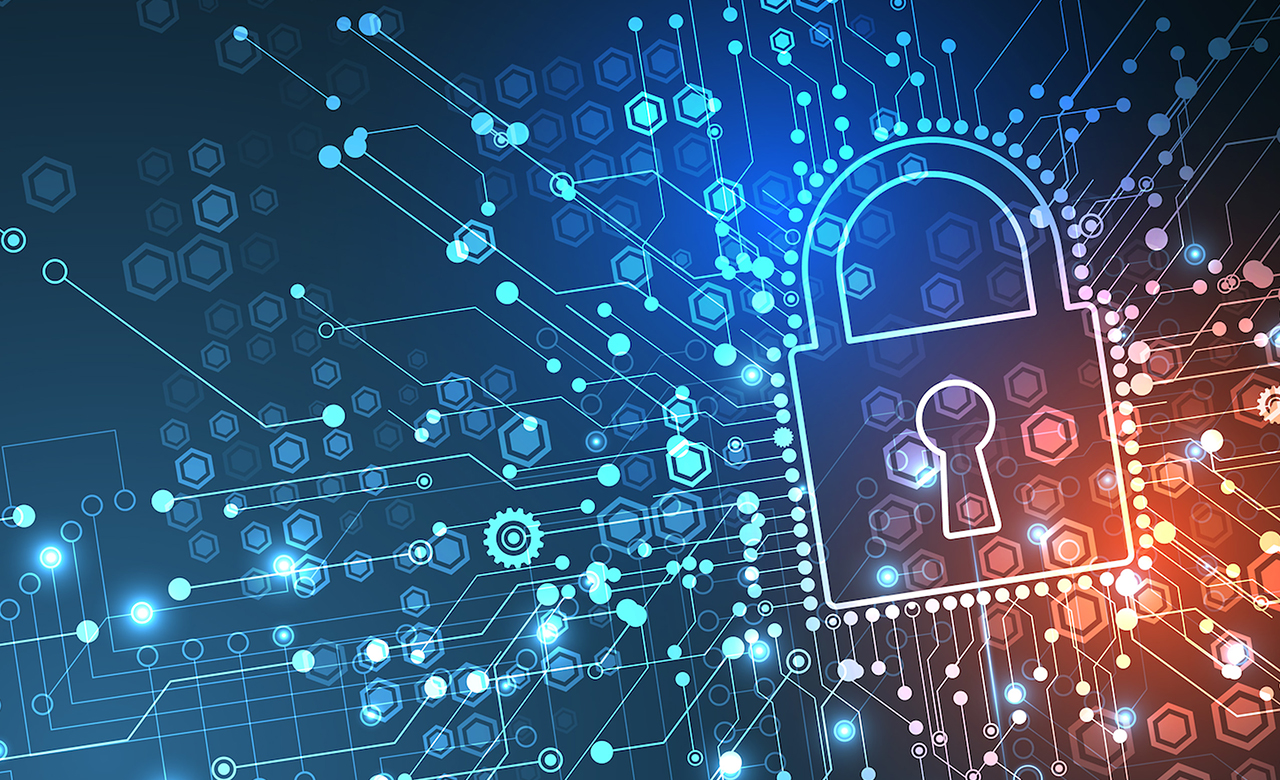
Did you know? The internet has become a dangerous space filled with viruses, malicious links, and trojans. Cyber-attacks are happening more frequently, data breaches are becoming a regular occurrence, and a significant percentage of the unprotected online population is becoming more vulnerable. With only one click making you lose thousands and even millions, it’s time to boost your safety and security on the internet. Cyber security is no more necessary only for a professional environment but also mandatory in your home environment. Here are eight personal cyber security tips to keep you safe while on the web.
1. Use an Anti-Virus Protection and Firewall
Installing an anti-virus protection software is one of the essential steps in safeguarding your information and device from malicious attacks. 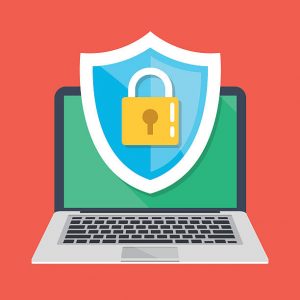 This software can block malicious viruses, including malware, from penetrating your device and exposing sensitive data. However, it’s imperative to use anti-virus software from reputable and trusted providers to guarantee your online security. A firewall is also an excellent tool that helps your device filter viruses, hackers, and other malicious activities on the internet and regulates the traffic allowed to enter your device. Mac OS and Windows usually come with their firewalls, namely Windows Firewall and Mac Firewall. You can also use a firewall on your router or the router from your wireless provider to prevent cybercriminals from targeting your home network.
This software can block malicious viruses, including malware, from penetrating your device and exposing sensitive data. However, it’s imperative to use anti-virus software from reputable and trusted providers to guarantee your online security. A firewall is also an excellent tool that helps your device filter viruses, hackers, and other malicious activities on the internet and regulates the traffic allowed to enter your device. Mac OS and Windows usually come with their firewalls, namely Windows Firewall and Mac Firewall. You can also use a firewall on your router or the router from your wireless provider to prevent cybercriminals from targeting your home network.
2. Always Update Your Software
Keeping your software up to date can significantly reduce the risk of ransomware. Outdated applications and operating systems can be the  way for cyber attackers to enter your device and acquire your confidential information. So, by keeping your software always updated, you can prevent hackers from accessing your device. If you don’t have time to update your applications and operating system manually, you should turn on the automatic update option on your device. You should also ensure that your desktop browser (Le. Google Chrome, Firefox Safari, Microsoft Edge) has automatic security updates. In addition, keeping updated browser plugins such as Java Flash, QuickTime, and RealPlayer will strengthen your online security.
way for cyber attackers to enter your device and acquire your confidential information. So, by keeping your software always updated, you can prevent hackers from accessing your device. If you don’t have time to update your applications and operating system manually, you should turn on the automatic update option on your device. You should also ensure that your desktop browser (Le. Google Chrome, Firefox Safari, Microsoft Edge) has automatic security updates. In addition, keeping updated browser plugins such as Java Flash, QuickTime, and RealPlayer will strengthen your online security.
3. Utilize Two-Factor Authentication
Using two- or multi-factor authentication is an excellent way to add additional layers of protection to the standard login details-usernames 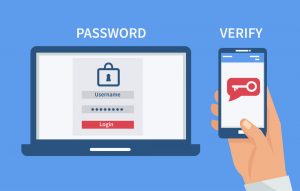 and passwords. Without two-factor authentication, hackers can easily input your username and password, and they can already access your account. However, with two-factor authentication, the cybercriminal would need to enter additional authentication, such as a one-time pin or a personal identification code only you can access
and passwords. Without two-factor authentication, hackers can easily input your username and password, and they can already access your account. However, with two-factor authentication, the cybercriminal would need to enter additional authentication, such as a one-time pin or a personal identification code only you can access
4. Beware of Phishing Scams
Phishing is one of the most common cybercrimes used in different parts of the world. Over 3.4 billion phishing emails are being sent daily, accounting for trillions of fake emails. Unfortunately, many people still fall for these phishing schemes, from sending realistic fake emails to phone calls pretending to be from the bank or government. Always be suspicious of the emails you receive, regardless of where it is from. Nowadays, cybercriminals can utilize your friend’s or co-worker’s email to send you an extension that can infect your system. Once you click a malicious link or open an attachment, you give cybercriminals the freedom to enter your device and obtain your bank details and other financial information. The next thing you’ll know, your hard-earned money is gone.
5. Apply a Passcode Lock
Most smartphones available today offer passcode locks and biometric logins. When setting up your passcode, don’t settle for the four-digit 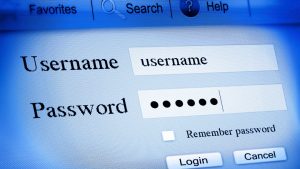 pin; Instead, create a strong password with different alphanumeric characters. Remember that even with a Touch ID or Face ID, you can still access your phone via passcode. So, if ever someone stole your phone or you lost your phone accidentally, you will have enough time to contact your bank and cancel bank access from your phone.
pin; Instead, create a strong password with different alphanumeric characters. Remember that even with a Touch ID or Face ID, you can still access your phone via passcode. So, if ever someone stole your phone or you lost your phone accidentally, you will have enough time to contact your bank and cancel bank access from your phone.
6. Avoid Connecting to Public Wi-Fi
Internet access has become an essential part of our everyday lives, especially for remote workers and students. Whenever people go out of  their house, they always look for free Wi-Fi to save their data. Unfortunately, connecting to public Wi-Fi, whether in your favorite coffee shop or your hotel, is never safe unless you use a virtual private network (VPN). It’s also more dangerous to perform online banking transactions while connected to a public network, as cybercriminals can easily enter the network and get all your money. Many people work in a cafe because of the slow internet connection at home. If you are one of these people, you might want to switch to a more reliable connection to prevent going to places with public Wi-Fi and avoid risking your security and safety.
their house, they always look for free Wi-Fi to save their data. Unfortunately, connecting to public Wi-Fi, whether in your favorite coffee shop or your hotel, is never safe unless you use a virtual private network (VPN). It’s also more dangerous to perform online banking transactions while connected to a public network, as cybercriminals can easily enter the network and get all your money. Many people work in a cafe because of the slow internet connection at home. If you are one of these people, you might want to switch to a more reliable connection to prevent going to places with public Wi-Fi and avoid risking your security and safety.
7. Keep Track of Your Digital Activities
Monitoring your digital footprint can help you show if your account is compromised on not. For example, in the security section of Facebook, 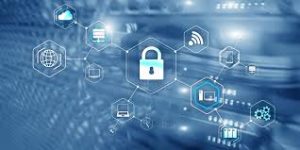 you can show where your account is logged in and what time it was last accessed. If you see an unfamiliar device or location, you should immediately terminate all sessions and replace your password. Facebook also offers two-factor authentication to strengthen your account security.
you can show where your account is logged in and what time it was last accessed. If you see an unfamiliar device or location, you should immediately terminate all sessions and replace your password. Facebook also offers two-factor authentication to strengthen your account security.
8. Always Backup Your Data
You should always back up important data on the cloud and external storage. Fortunately, high-capacity storages are more affordable  nowadays, so it’s no excuse for you not to back up your files. Malicious threats and cybercriminals don’t always steal information but erase or encrypt it. Therefore it’s best to be on the safe side if it happens.
nowadays, so it’s no excuse for you not to back up your files. Malicious threats and cybercriminals don’t always steal information but erase or encrypt it. Therefore it’s best to be on the safe side if it happens.
In conclusion, with the increasing cyberattacks and malicious threats to individuals and businesses, no one should think that they are Immune to these cybercrimes. The techniques and methods of cybercriminals are continuously evolving to penetrate even the most secure network. So, if you are used to browsing the web without any protection, you should think twice and follow the tips listed above. There are many ways to improve your online security and privacy, from keeping your software always updated and backing up your files to looking out for phishing scams and setting strong passwords. Keep yourself educated and protected to prevent cybercrimes from happening to you.